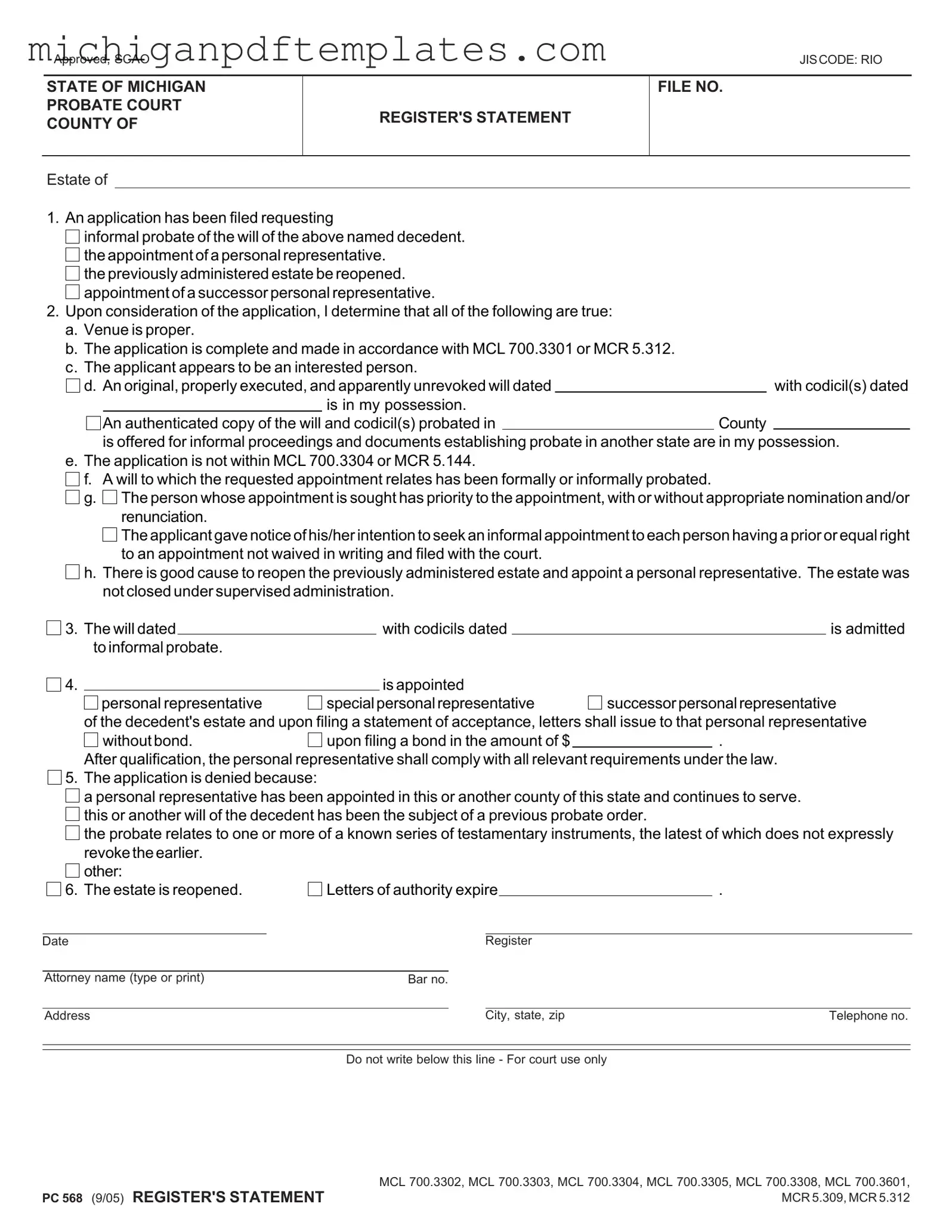Fill in Your Michigan Pc 568 Form
The Michigan PC 568 form is a legal document used in the probate process to request informal probate of a decedent's will, appoint a personal representative, or reopen a previously administered estate. This form ensures that all necessary information is provided to the probate court, allowing for a smooth and efficient handling of estate matters. For those needing to navigate this process, filling out the form accurately is crucial; click the button below to get started.
Get Your Form Now

Fill in Your Michigan Pc 568 Form
Get Your Form Now

Get Your Form Now
or
▼ PDF Form
Finish this form quickly and move on
Fill in and complete Michigan Pc 568 online quickly.